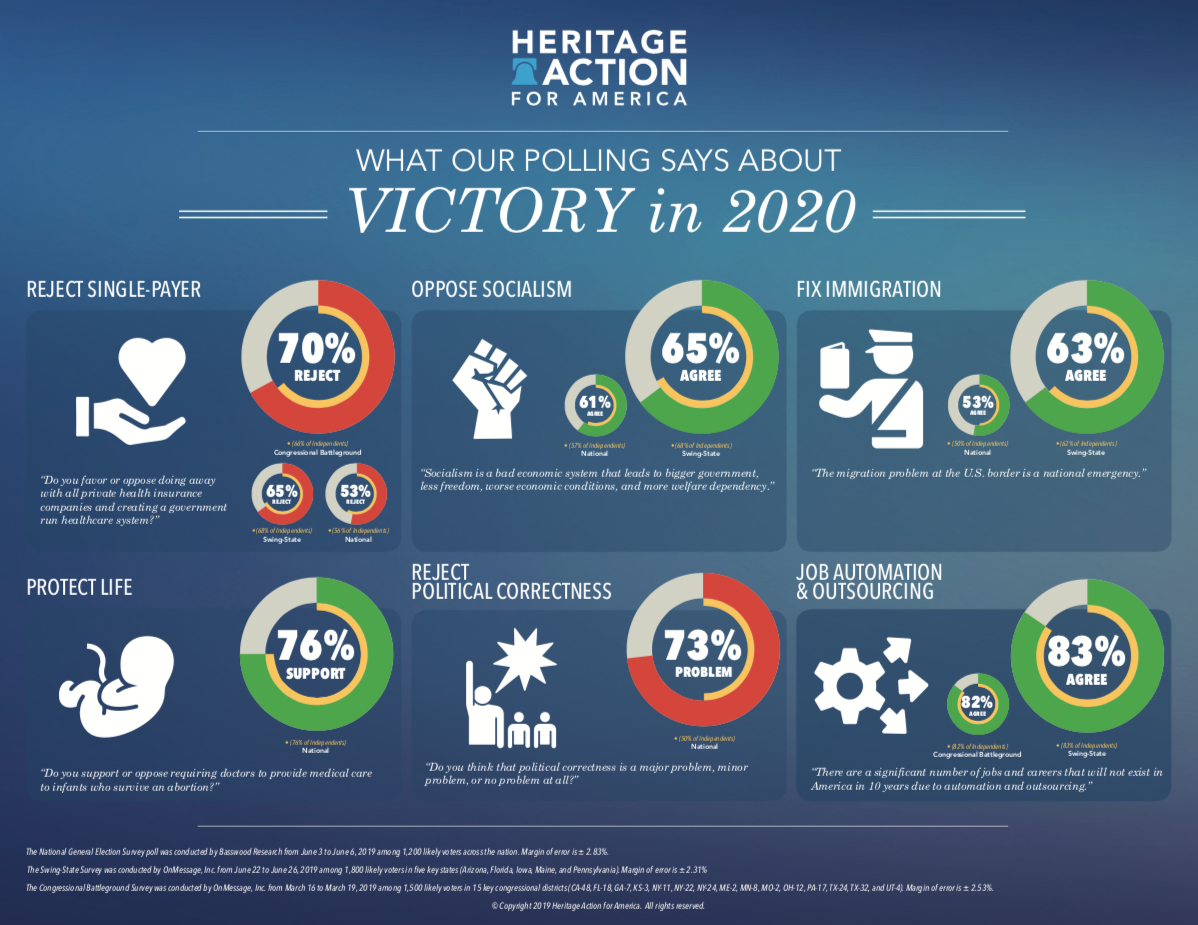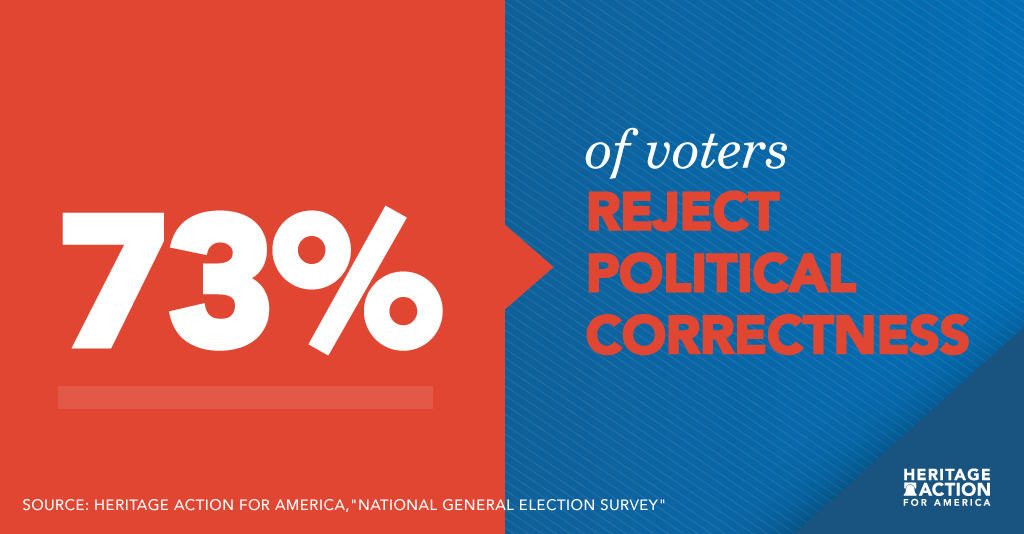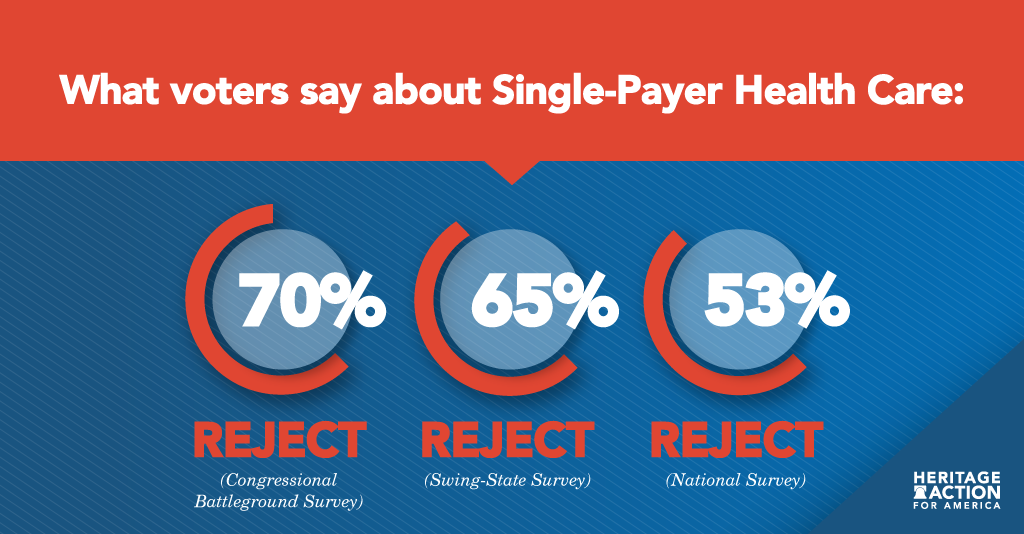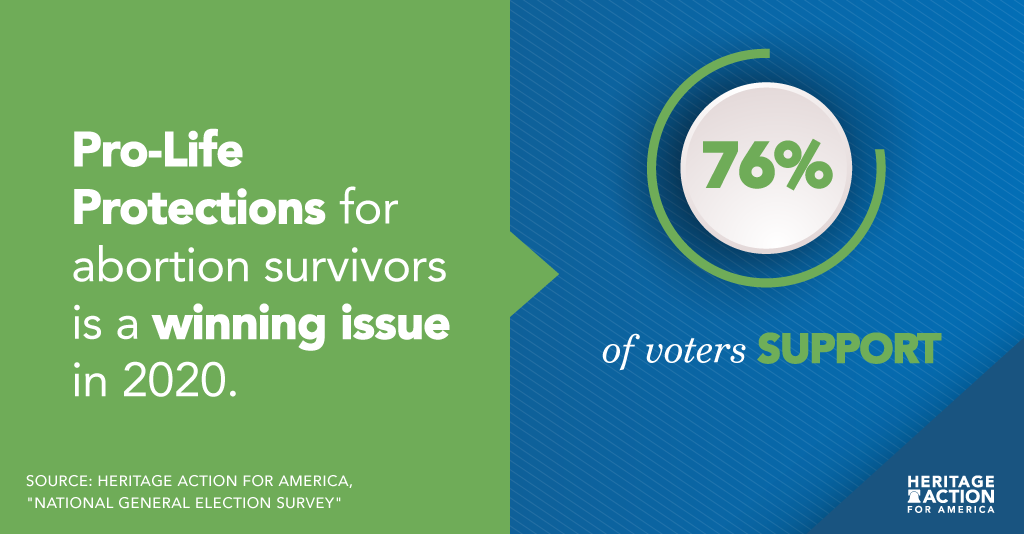2020 Issue Polling: Heritage Action Unveils a Winning Conservative Agenda For 2020
Heritage Action for America has released the results of three opinion polls conducted across the nation in 2019. Each poll built upon the results of the previous to provide a targeted look at what animates voters in strategic areas across the country. Together, the polls reveal a roadmap for conservatives to build a policy agenda that improves the lives of Americans and creates a winning coalition for 2020. An in-depth look at voter responses to the three surveys are available here.
We conducted three polls:
- A National Survey of 1,200 likely voters throughout the country.
- A Congressional Battleground Survey of 1,500 likely voters in 15 key congressional districts (CA-48, FL-18, GA-7, KS-3, NY-11, NY-22, NY-24, ME-2, MN-8, MO-2, OH-12, PA-17, TX-24, TX-32, and UT-4).
- A Swing State Survey of 1,800 likely voters in five key states (Arizona, Florida, Iowa, Maine, and Pennsylvania).
Our Goal
Heritage Action Executive Director Tim Chapman wrote the following for today’s Politico Magazine:
Our goal was simple: To find out what issues currently motivate the coalition that elected Donald Trump and Republican congressional majorities in 2016, so that we can keep that coalition together and expand it while simultaneously advancing the conservative ideas we hold dear. We found that the GOP isn’t connecting the dots between its own innate conservative principles and voters’ preferences—which, our polling reveals, are more similar than many realize.

Immigration
Across every demographic group in our diverse group of battleground districts, immigration was identified as the single biggest issue. But the reasons voters gave for immigration’s importance weren’t what you’d expect—at least not if you listen to the way the issue is often discussed.
On the one hand, 83 percent of Republican voters said that “illegal immigration affects my life,” including strong majorities of working-class and suburban voters. Yet when asked what they considered to be illegal immigration’s biggest consequence, the most common answer wasn’t violence, job losses or cultural change; more than half said overuse of social services. Republican voters were deeply concerned about illegal immigrants abusing our health care system, schools and welfare programs.
Political Correctness
Take political correctness. More than 90 percent of Republicans agree it’s a problem, and more than three-quarters say it’s a “major” problem. Among for independents, almost 80 percent are concerned about political correctness. More to the political point, 57 percent of general election voters say national Democrats are becoming culturally extreme.

Health Care
In the case of Medicare for All, Republicans should argue that it would create a one-size-fits-all government-run program for normal folks, while the rich will find other ways to get better care. In the case of student-loan forgiveness, we can show that it would reward colleges’ bad behavior without helping the next generation get the training they need to fill the jobs of tomorrow.
Most of all, promoting economic fairness requires policy innovation. Issues like paid family leave, the high cost of living and ever-pricier health care aren’t going away. The only viable option for Republicans is to do the hard work of crafting workable conservative policies. Without an alternative, the American people will increasingly turn to the party that has a plan, however bad it may be.

Pro-Life Protections
Part of the reason is the Democrats’ leftward shift on traditional hot-button social issues. Case in point: House and Senate Democrats recently blocked a proposal requiring doctors to provide medical care to infants who survive abortion—and every Democratic presidential candidate has toed the party line in opposing such care. Yet even while we found that more Americans identified as pro-choice instead of pro-life (48 percent, versus 45 percent), 76 percent of respondents—including huge majorities of Republicans, independents and even pro-choice Democrats—overwhelmingly support the policy Democrats blocked.

More results from the polls can be found here.